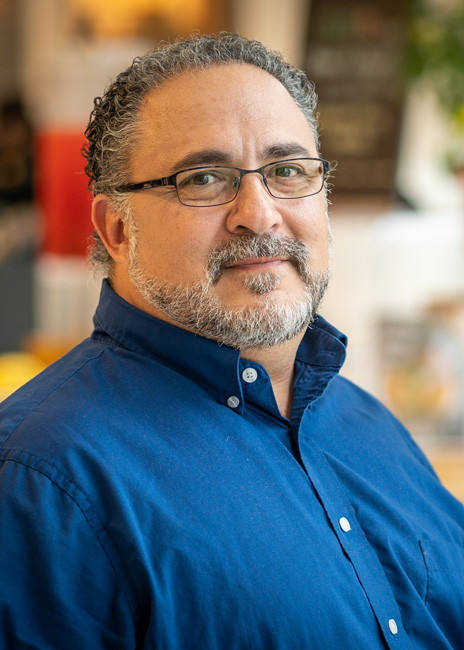Early in the COVID-19 pandemic, when many foodservice operations were deserted — 95% of our 7,000 local employees at the Jacksonville, Fla., campus all worked from home — there was still work for us at Florida Blue.
 Damian Monticello, Corporate Hospitality Services Manager, Florida Blue Jacksonville, Fla.My reduced team began providing a complimentary lunch to the approximately 550 critical infrastructure employees on- site. And in August, we expanded our mobile app platform and started offering a limited menu of breakfast items and specialty coffee drinks.
Damian Monticello, Corporate Hospitality Services Manager, Florida Blue Jacksonville, Fla.My reduced team began providing a complimentary lunch to the approximately 550 critical infrastructure employees on- site. And in August, we expanded our mobile app platform and started offering a limited menu of breakfast items and specialty coffee drinks.
It’s also been a time of preparation for the future, and we’ve been able to revamp the cafe menu by testing new items on our captive focus group. We solicit feedback so we can incorporate it into our permanent menu in the future. We’re looking at which cuisines people like, which flavor profiles.
We’re seeing continued increase in utilization of our app as well as higher check averages, since people tend to spend more when they use technology to pay. In the immediate future, when people return to the office, this will be the only way they can place orders to ensure we get food to them safely.
Using this app will also allow us to offer more variety because we can concentrate staff in the back of house due to the fact that we won’t need as many people to refill salad bars and run cash registers. So, in the future we’ll be able to provide more items on our grill station or offer more specials.
Going into the immediate future, on the catering side, it’s going to look very different. Serve-yourself buffets will go away, and we’ll have to look at more plated options and how many people we can have in a place at one time — the restrictions on the size of gatherings will have a big impact on catering. We think this will be the slowest to return, and it will also depend on the speed at which we return people to the office.
In the longer term, you’re going to see a continued emphasis on technology — apps or systems in the back of house to help staff become more efficient, such as the salad-making robots that are making their way into noncommercial locations. That’s something we’d anticipate going into smaller sites where we have a micromarket because it can provide something more substantial.
One of my worries going forward is how we’ll change how we serve items, especially those that are to-go, without losing sight of our commitment to sustainability.
Before COVID-19, we were trying to have everything be 100% compostable or recyclable; we don’t want to take a step back. We haven’t had to make any concessions yet, but soon we may have to look at multiple suppliers rather than just one, so the packaging may look different from one day to the next, or one week to the next. Sustainability is becoming a really hot-button topic, especially for students, and it will be something they look for their employer to do — to share their commitment to sustainability and the environment.
The challenge for the B&I industry as a whole, is that with more people continuing to work from home in the future, operations will look to find ways to connect with, and provide services to, employees who may not be on-site.



